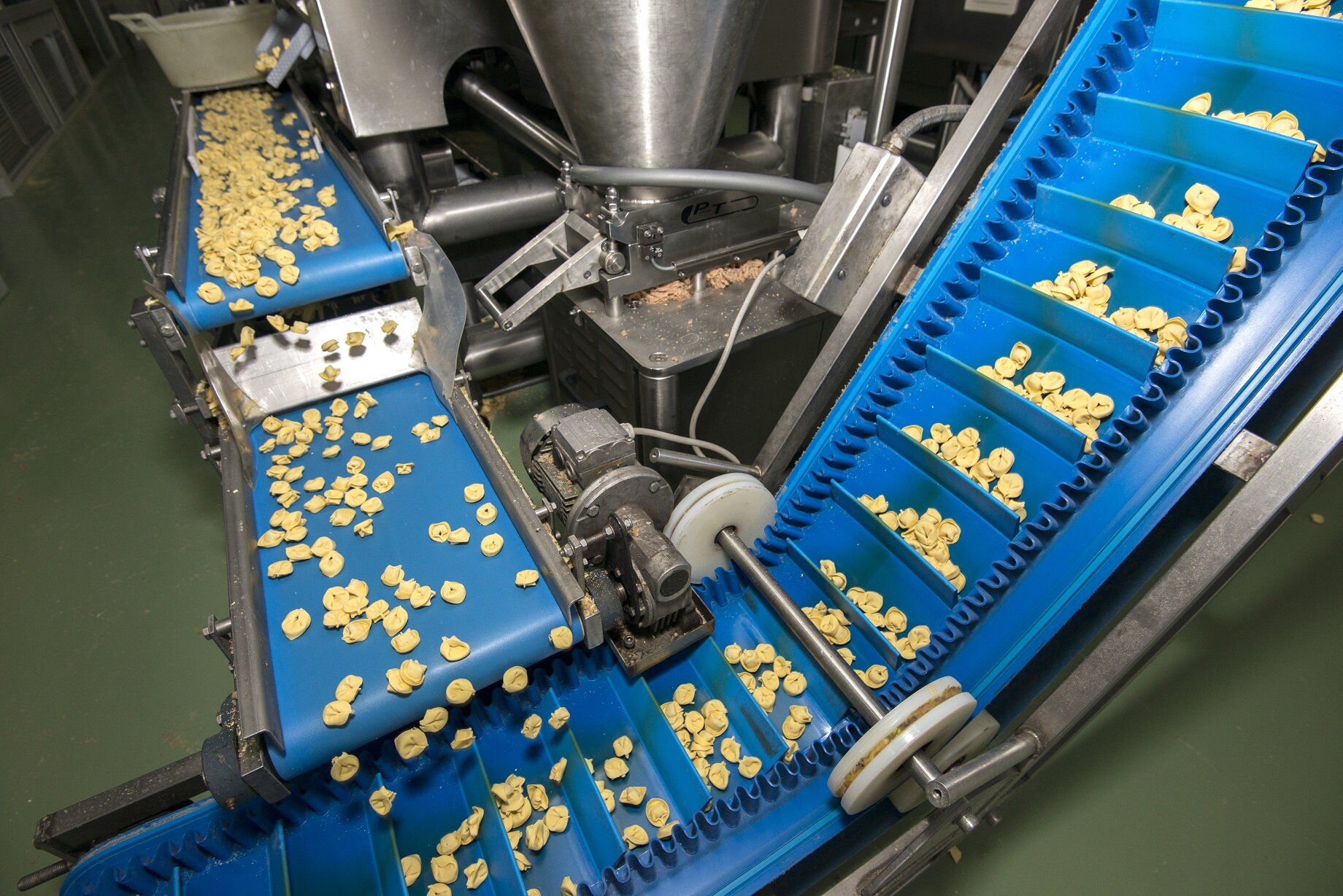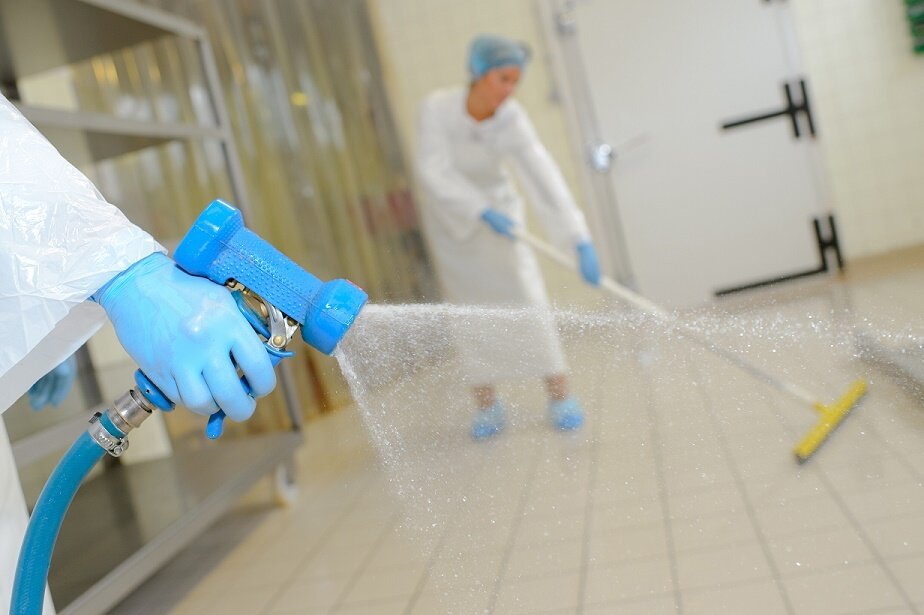Proper sanitation within a food processing plant is key to meeting safety standards. Poor brand reputation due to outbreaks and recalls causes significant challenges to the very best food processing management teams. The problems and solutions are complex … while the fast-changing consumer market demands continually push the limits of manufacturing teams.
1- Daily in House Sanitation and Labor Shortages
The daily cleaning of food processing plants is technically challenging. The cleaning must be performed daily and often during the overnight/weekend shifts. Food processing cleaning requires the use of SSOPs (Sanitation Standard Operating Procedures), verification of cleaning, and detailed regulatory reporting.
At times, even the best in house sanitation teams just do not have enough cleaners to perform the daily operation. Employee turnover, vacations, and illness only make the plant sanitation that much harder.
Sanitation functions can be compromised further budgetary restraints and tight manufacturing timelines.
2 – Failure to Follow SSOPs (Sanitation Standard Operating Procedures)
SSOPs are critical to maintaining the sanitation in your food processing plant. Failure to follow your SSOPs can cause food product contamination by pathogens, consumer illness, product recalls, and public relation disasters.
3-Inconsistent Hygiene Practices at Food Processor Plants
Cross contamination by improperly trained and unsupervised employees creates an environment for the spread of pathogens in food processing plants. When GMPs (Good Manufacturing Practices) are not followed, such as the changing of outer garment/foot wear when working between the raw and RTE(Ready To Eat) areas, pathogens easily spread.
4 – Ineffective Cleaning Procedures and Noneffective Pathogen Control
Listeria, Salmonella, and E coli spread throughout plants when ineffective cleaning/sanitation procedures are used. Food processing manufacturing is complex. The production floor equipment is extremely advanced and requires detailed daily cleaning/sanitation procedures. Too often, resources are limited and in house sanitation teams struggle to consistently implement effective sanitation procedures.
5 – Protecting Brand Reputation
The emergence of foodborne pathogens such as Listeria monocytogenes, Salmonella, E. coli 0157:H7, and Campylobacter have grabbed national media attention and awareness. Companies thrive or die on the reputation of their brand. Family companies to large corporations are destroyed when their food products cause outbreaks across multiple states, leading to numerous hospitalizations and possibilities of death. The psychological impacts of recalls on consumers and marketplace can take years to recover. Brands are often compromised by improperly trained employees failing to follow their SSOPs.
Labor Options – Starting at $25 Hour
Cleaners Supplied by DBS
DBS supplies cleaners & supervisors
Client manages cleaning team
Client trains cleaners in their SSOP
Client orders all cleaning supplies
All taxes, workmen’s compensation, unemployment taxes included
Flexible cleaning crew size – can scale
Skilled Utility Work
Skilled labor
Strip/Wax floors
High Dusting
Specialty Cleaning
Shift Cleaning & Day Porter/Janitor
Cleaning 1st Shift
Cleaning 2nd Shift
Cleaning 3rd Shift
Nightly Cleaning Services
DBS managed production cleaning
Implementing your SSOP
Spartan Sanitation Program
Train- Validate- Document
ATP Testing
Cost effective monthly rates
Multi-Level supervised cleaning
QC inspections of your plants
Fast corrective actions implemented
Background checks for security and safety
Fully insured & simple billing
Our Labor Solutions Include:
Cost effective labor rates
Planned scheduled shifts
On demand requests available
Uniformed workers
Background checks
OSHA trained workers
Fully insured
All taxes, workmen’s compensation, unemployment taxes included
Simple billing – no long term contracts




